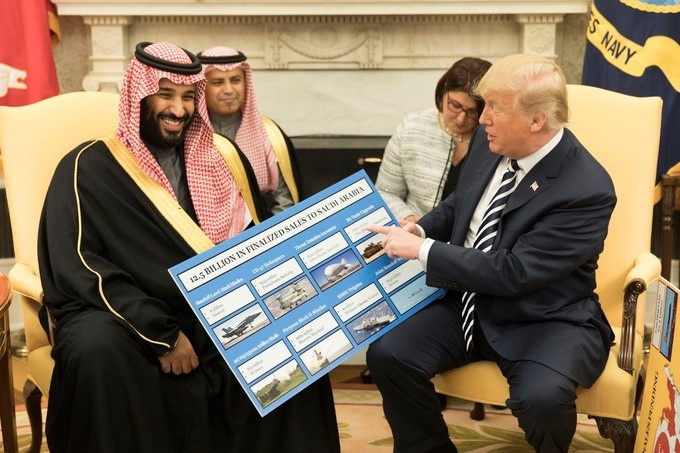A Scathing Rebuke of Trump’s Arms Sales to the Gulf Could be a Turning Point
Assistant Secretary of State for Political-Military Affairs, R. Clarke Cooper, endured two hours of withering questions and stinging criticisms from a bipartisan group of Senators at last week’s hearing on the Administration’s emergency arms sales to Saudi Arabia and the UAE. In what amounted to a clear rebuke of the sales that bypassed Congressional oversight procedures, lawmakers voiced not only their discontent with the Administration’s decision but also their intention to ensure they would not be so easily circumvented in the future.
In May, President Trump invoked an obscure emergency provision of the Arms Export Control Act to sidestep the traditional Congressional review of U.S. arms sales and expedite the transfer of weapons and materiel to Riyadh and Abu Dhabi, who have used American equipment and munitions to sustain their bloody military campaign in Yemen, killing scores of civilians in the process.
Though the Administration cited new threats from Iran in justifying the move, many have suggested that the decision was a response to growing Congressional opposition to U.S. support to the Saudi-led campaign in Yemen. Informal holds had been placed on several of the sales that were pushed through and, in March, lawmakers voted to end support to the coalition, a measure that was eventually vetoed by the President.
Ultimately, as I noted in a recent opinion piece, this episode, while troubling in and of itself, illustrates a broader problem. Namely, that lawmakers have insufficient statutory authority to block arms sales they deem to be contrary to U.S. interests, values, or priorities.
Under previous administrations, Congress’ statutory authority over arms sales was augmented by an informal process, providing lawmakers with additional means to influence or block transfers. As a matter of policy, the informal process and “pre-notification” amounted to negotiation between lawmakers and the administration, ensuring that Congressional concerns were addressed prior to the formal notification, and effectively allowed members of Congress to block sales indefinitely.

But, as President Trump’s actions have illustrated, depending on non-codified processes to ensure Congressional oversight of arms sales is insufficient a guarantee. As Senator Cardin said at least week’s hearing, the President’s actions “could affect the comity that exists between the two branches of government on arms sales, which means we are going to have to be more prescriptive in our laws, talking away discretion from the executive branch of government.”
The bipartisan frustration over the administration’s emergency sales has catalyzed a broader conversation about Congressional oversight over arms sales and may lead lawmakers to seek more established mechanisms to protect their role in the process.
